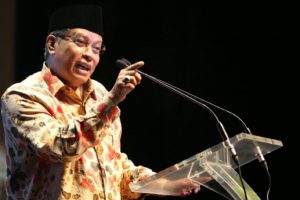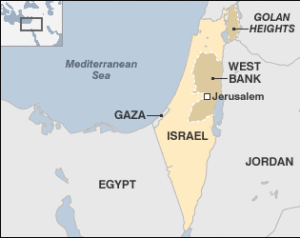Google-300x203.jpg" alt="Google to link smart Devices and Reduce App Clutter (Photo : AA)" width="300" height="203" /> New Google project wants to connect smart devices using Web addresses, not apps.(Photo : AA)
California, 9 Dzulhijjah 1435/3 October 2014 (MINA) –The Physical Web, a new ambitious project by Google was revealed Thursday, aimed at reducing app clutter.
The project is headed by Scott Jenson, a product strategist who joined Google’s Chrome team last November.
The company, always in the Internet of Things’ vanguard, wants to simplify the future, Anadolu Agency quoted by Mi’raj Islamic News Agency (MINA) as reporting, Friday.
“The Physical Web is an approach to unleash the core superpower of the Web: interaction on demand,” Jenson wrote in an explanation of the project on GitHub.
Also Read: Academic Boycott of Israel Doubles Despite End of Gaza War
“People should be able to walk up to any smart device – a vending machine, a poster, a toy, a bus stop, a rental car – and not have to download an app first.”
While the “Internet of Things” is still a bud, the concept is burgeoning across multiple sectors.
Less than a decade ago we were satisfied with laptops and smartphones; now the public is offered an array of a smarter cars, televisions and even toasters.
For most web-connected objects to work, an application must be downloaded that controls the object via a computer, tablet or phone.
Also Read: Trump, Mamdani Aim for Cooperative Relationship After White House Meeting
That system is fine, for now. But as the number of smart devices grows, requiring users to download an individual native app for every kitchen appliance or parking meter, it will be undoubtedly overcomplicated and frustrating.
Cisco’s Internet Business Solutions Group 50 billion devices, from alarm clocks to streetlamps, will be connected to the Internet by 2020.
There are already far billions more objects linked to the Web than people, and that number shows no slowing down.
“Everything should be just a tap away,” according to Jenson.
Also Read: Trump to Meet with NYC Mayor-Elect Mamdani at White House on Friday
The Physical Web plans to use a system of URLs, or Web addresses. Smart devices would be given a web address, not an individual app.
The goal is to create a standardized, open system that will be adopted by as many people (and objects) as possible.
Though The Physical Web’s project is currently undeniably technical, it could have groundbreaking implications for everyday life in the years to come.
“Sometimes it’s the tiny ideas that can change the world,” Jenson noted. (T/P002/P3)
Also Read: Report Exposes Canada’s Role as ‘Weapons Transit Corridor’ for Israel
Mi’raj Islamic News Agency (MINA)
alviero martini
occhiali da vista ray ban
toms outlet
jordan pas cher
prada mens shoes
prada shoes
hermes uk
timberland uk
karen millen uk
Also Read: Trump Designates Saudi Arabia as Major Non-NATO Ally in Historic Defense Pact































 Mina Indonesia
Mina Indonesia Mina Arabic
Mina Arabic